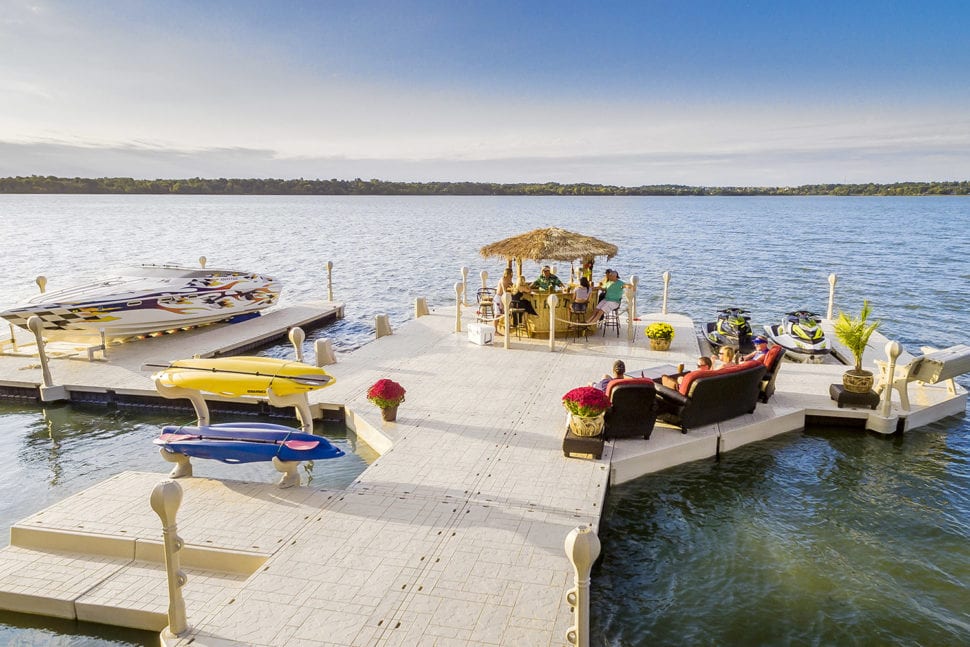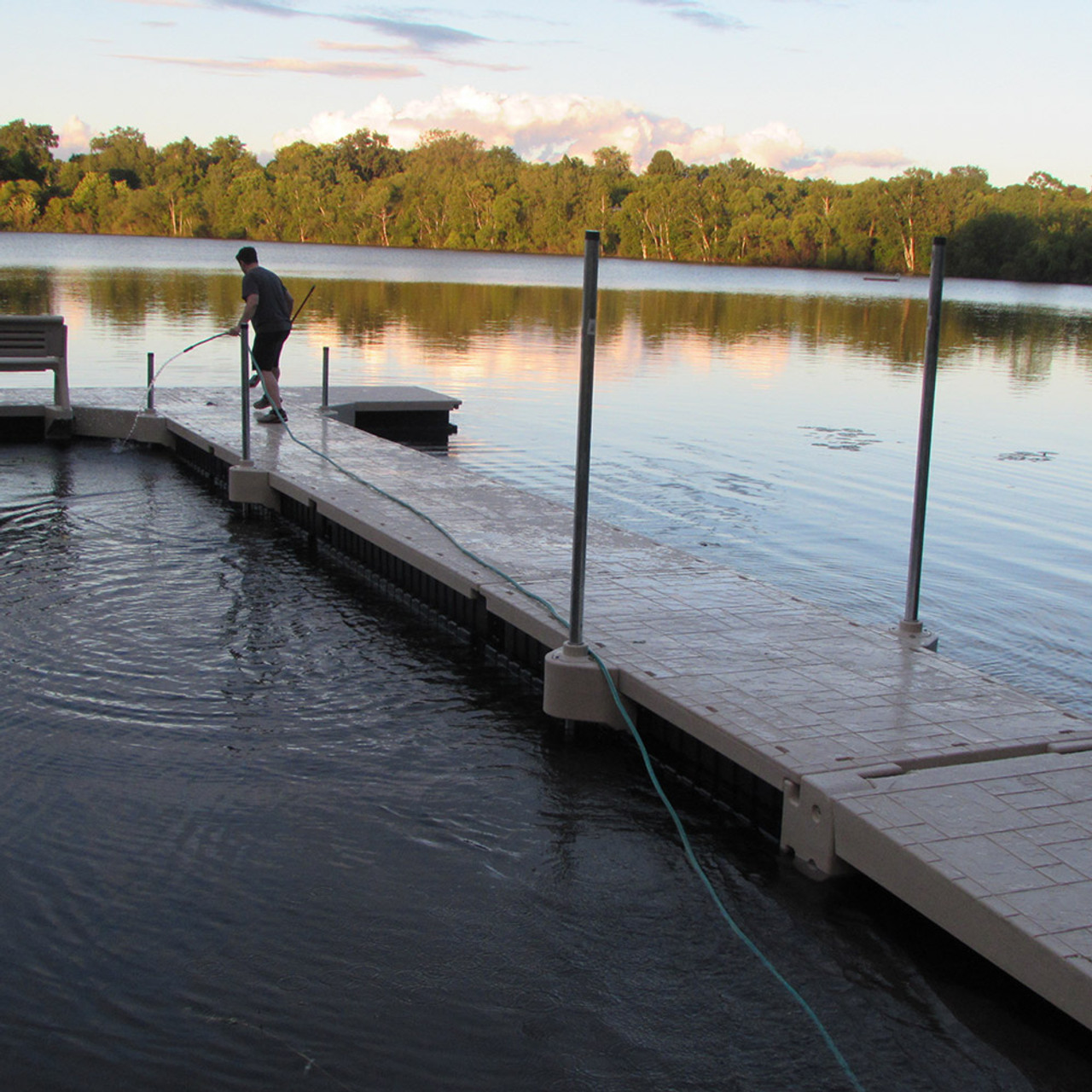Navigating the Options: Choosing the Right Dock Company for Your Floating Dock Task
Navigating the Options: Choosing the Right Dock Company for Your Floating Dock Task
Blog Article
Create the Perfect Docking Service With Floating Docks
Floating docks present a functional remedy for a variety of maritime demands, adjusting perfectly to fluctuating water degrees and varied vessel types. Their modular nature enables quick installment and moving, yet the option of appropriate products and layout attributes is critical for guaranteeing both performance and aesthetic appeal. As we explore the essential components that add to the efficiency of floating docks, several crucial variables regarding security and maintenance will certainly emerge, questioning about how to enhance your docking experience. The succeeding discussion will certainly brighten these important considerations.

Advantages of Floating Docks
Floating docks deal numerous benefits that make them an ideal choice for numerous maritime applications. Unlike fixed docks, floating docks surge and fall with the trend, guaranteeing constant access for vessels.
Furthermore, floating docks are commonly much easier and quicker to set up contrasted to conventional fixed frameworks. Their modular layout enables for uncomplicated assembly and disassembly, assisting in upkeep and moving when needed. This flexibility is specifically helpful for momentary applications or in environments where problems may alter.
Floating docks additionally often tend to be much more ecologically friendly, as they minimize disruption to the seabed and bordering marine ecosystems. Their buoyant nature decreases the threat of damages to marine life, advertising a healthier environment. Moreover, these docks can be personalized to accommodate different vessel sizes, guaranteeing that they satisfy certain functional needs - floating dock services.
Inevitably, the combination of adaptability, ease of setup, and ecological considerations makes floating docks an extremely efficient solution for a large range of maritime needs.
Selecting the Right Materials
Selecting the proper products for floating docks is crucial to ensure durability, toughness, and security. The choice of materials straight affects the dock's efficiency in different environmental problems, consisting of exposure to water, sunshine, and possible wear from marine web traffic.
Typical products utilized for floating docks consist of light weight aluminum, wood, and high-density polyethylene (HDPE) Light weight aluminum is lightweight, corrosion-resistant, and requires minimal upkeep, making it an exceptional option for longevity. Its initial expense can be higher compared to other materials.
Timber, while aesthetically appealing and providing a typical appearance, can be susceptible to rot and pest damages if not properly treated. As a result, making use of pressure-treated wood or naturally sturdy varieties like cedar or redwood can mitigate these concerns.
HDPE is a prominent option due to its resistance to UV rays and chemicals, along with being eco-friendly. dock company. It is available and light-weight in various colors, permitting customization
Inevitably, the right product option will depend upon details demands, including budget, desired appearances, and environmental factors to consider. Cautious analysis of these variables will certainly lead to a durable and successful floating dock remedy.
Style Factors To Consider for Security
When making floating docks, making sure security is a fundamental element that can significantly impact their performance and safety and security. Stability in floating dock design is influenced by numerous factors, consisting of buoyancy, weight distribution, and the arrangement of components. An optimum buoyancy system must utilize products that supply enough lift while reducing weight. This equilibrium makes certain that the dock stays above water, even under differing tons.
Weight circulation is essential; equally distributing lots throughout the dock prevents turning and improves stability. Wider designs can use raised security, particularly in harsh water conditions, while longer docks may call for added assistances to protect against sagging.
Another key consideration is the ecological effect, consisting of wave activity and wind. Including functions such as click resources sidewalls or skirting can help mitigate the results of ecological forces, preserving stability in negative problems. Inevitably, a mix of thoughtful layout, material option, and understanding of ecological elements will yield a floating dock that satisfies both security and safety needs.
Installment Tips and Strategies

Following, safeguard the needed licenses and follow local laws, which may dictate installation techniques and environmental factors to consider. If needed, involve a certified contractor experienced in floating dock installments. Use high-quality products developed for marine settings to enhance durability and long life.
When positioning the dock, straighten it alongside the coastline to facilitate simple accessibility. Guarantee that the anchoring system is robust, utilizing concrete blocks or helical anchors to maintain the dock versus wind and wave activity. It's critical to represent seasonal water level fluctuations, including potential ice movement in cooler climates.
During the installation, verify the dock's floatation and stability before finalizing the anchoring. Regularly check the installment for any indications of wear or damage. By adhering to these pointers and techniques, you can attain a safe and secure, useful, and aesthetically pleasing floating dock installation find out here now that meets your needs.
Maintenance and Treatment Standards
Preserving and caring for floating docks is critical to extending their life expectancy and making sure secure use. Normal inspections ought to be conducted to recognize any signs of wear, damage, or marine growth. Try to find cracks, loosened installations, or tarnished areas on the dock's surface, as these problems can compromise architectural integrity.
Cleaning is necessary. Utilize a pressure washer to get rid of algae, barnacles, and particles, which can accumulate with time. For stubborn development, think about eco-friendly cleaning agents that will not hurt marine life.
Additionally, examine the mooring lines and supports frequently to ensure they are complimentary and secure from deterioration. Replace any torn or harmed lines promptly to preserve stability.
Throughout extreme climate, such as storms or freezing conditions, take preventive measures. Protect the dock with extra mooring lines and, if practical, remove any kind of removable components to stop damages.
Final Thought
In verdict, the application of floating docks presents a reliable and flexible docking service appropriate for different maritime applications. With proper installation and regular upkeep, floating docks can offer reliable and effective docking experiences for a large range of vessels.
As we discover the necessary aspects that add to the effectiveness of floating docks, several essential aspects regarding security and maintenance will emerge, raising concerns about just how to optimize your docking experience. Unlike look these up dealt with docks, floating docks surge and fall with the tide, ensuring consistent ease of access for vessels.When making floating docks, ensuring security is an essential facet that can significantly influence their performance and security. Security in floating dock design is influenced by numerous elements, consisting of buoyancy, weight distribution, and the arrangement of elements. Inevitably, a mix of thoughtful style, material selection, and understanding of ecological variables will certainly produce a floating dock that fulfills both stability and safety and security demands.
Report this page